Master's in Nursing Executive Online Degree Overview
Increase your impact by earning your online MSN degree as a Nurse Executive. Today, there is a great need for educated, experienced nurses to assume senior management positions in healthcare systems and other organizations.
Our program provides you with management techniques and business acumen that, when combined with the values and attributes you've acquired as a nursing professional, will prepare you for an executive leadership role.
Nursing salaries for nurse executives vary widely in the U.S. and are based upon many factors including geography, job description, specialty and experience. The Bureau of Labor Statistics indicates the median salary in May 2024 in the United States for Medical and Health Services Managers was $117,960 ($56.71 per hour), with a much faster than average projected job growth of 23 percent between 2023 and 2033.
Want to learn more? Watch our most recent Virtual Information Session.



